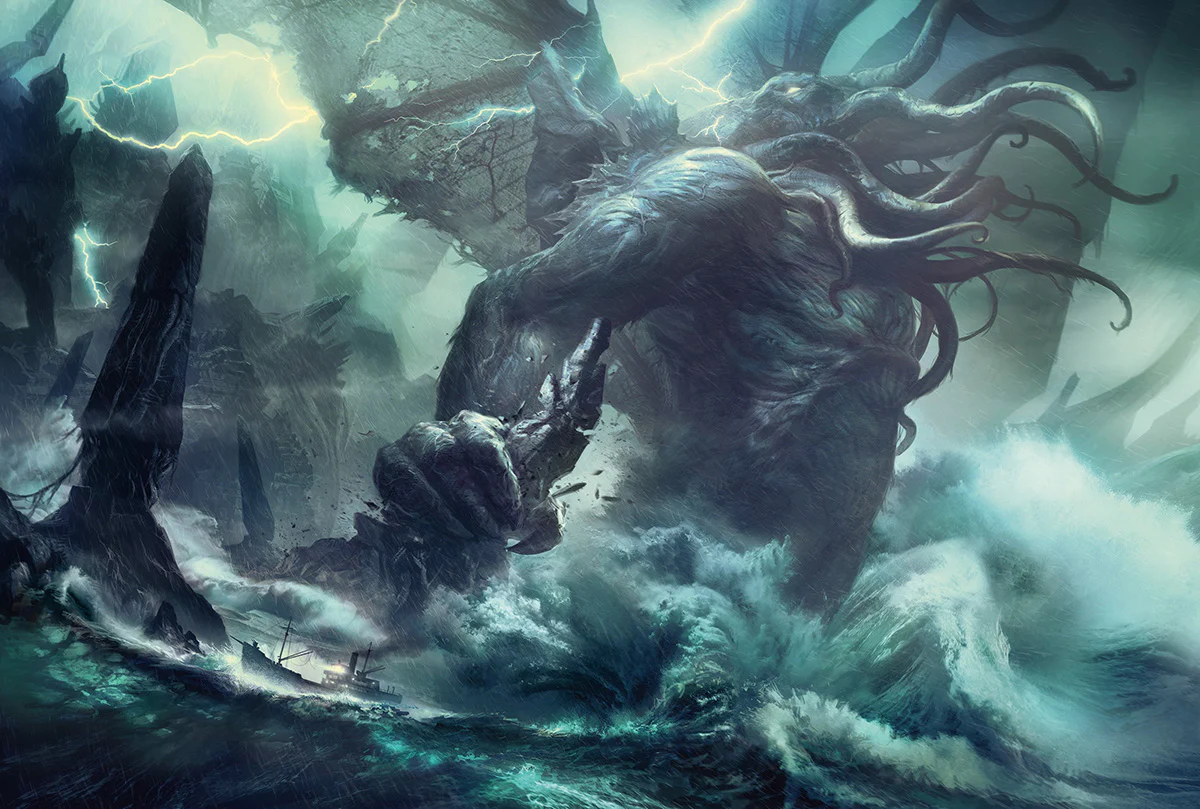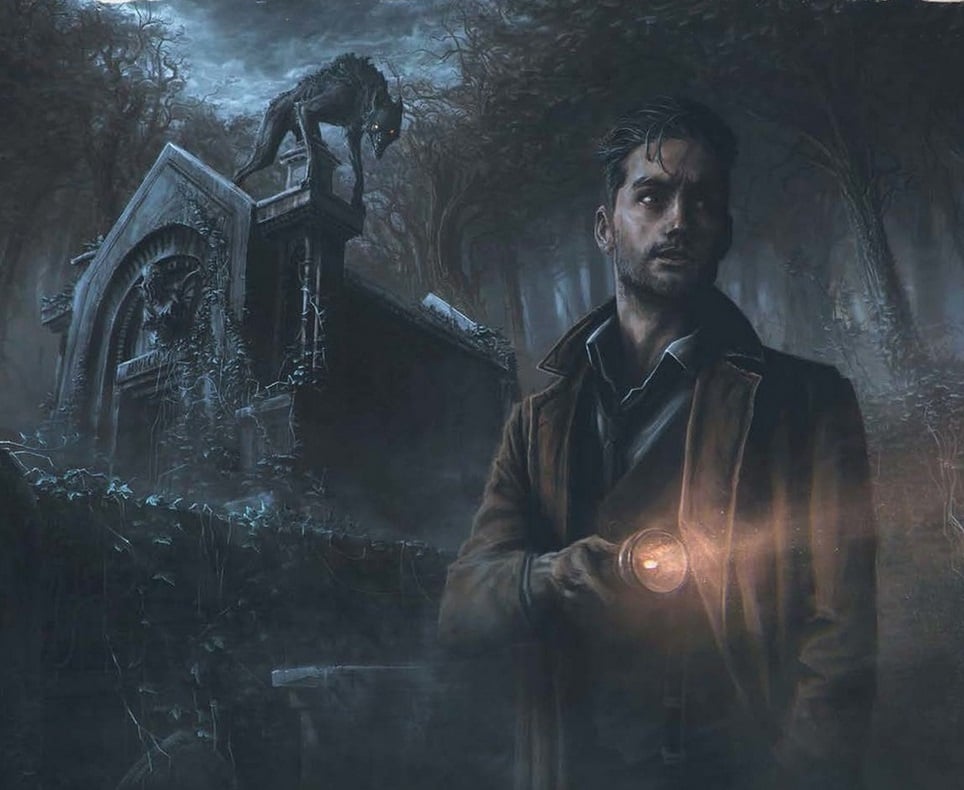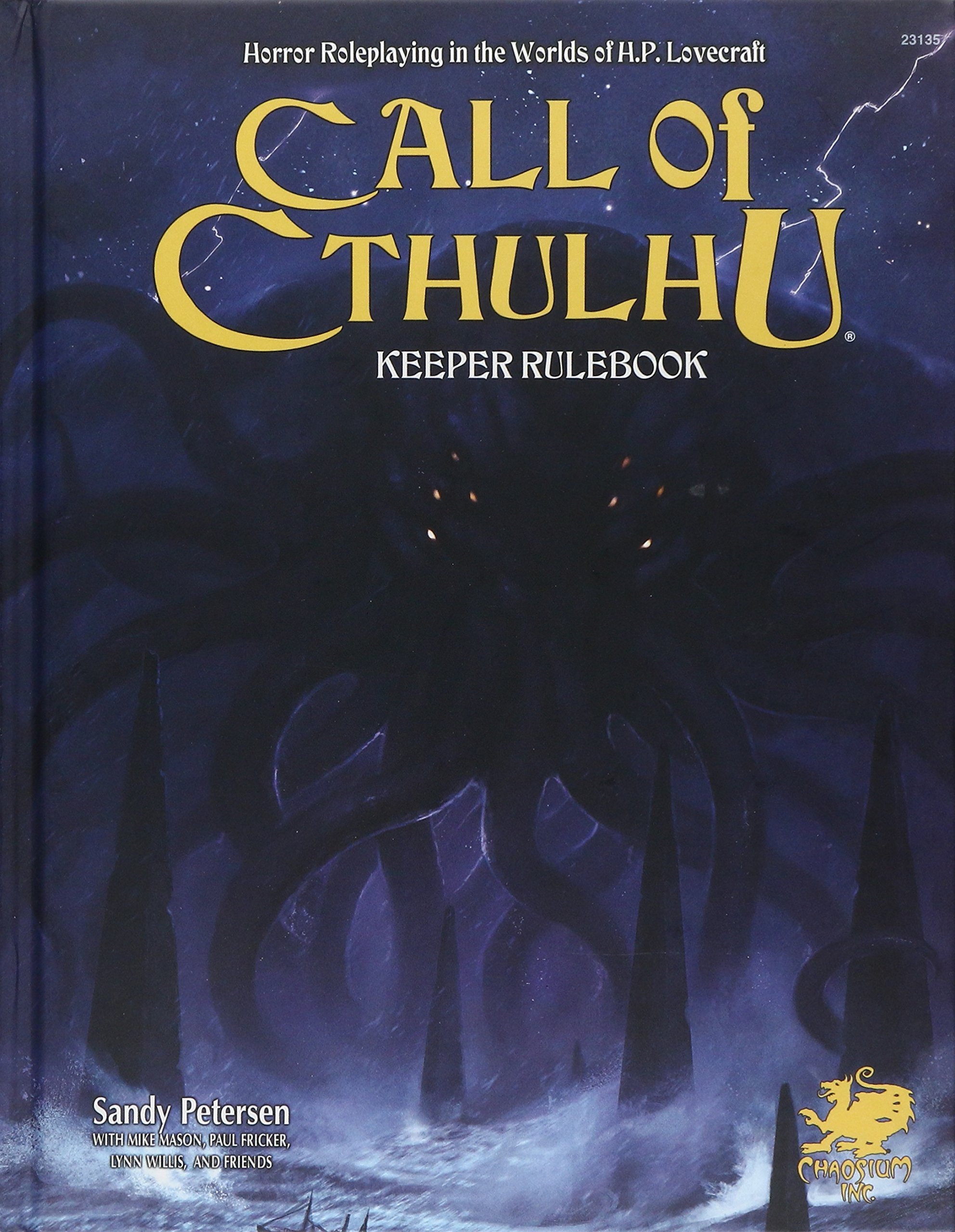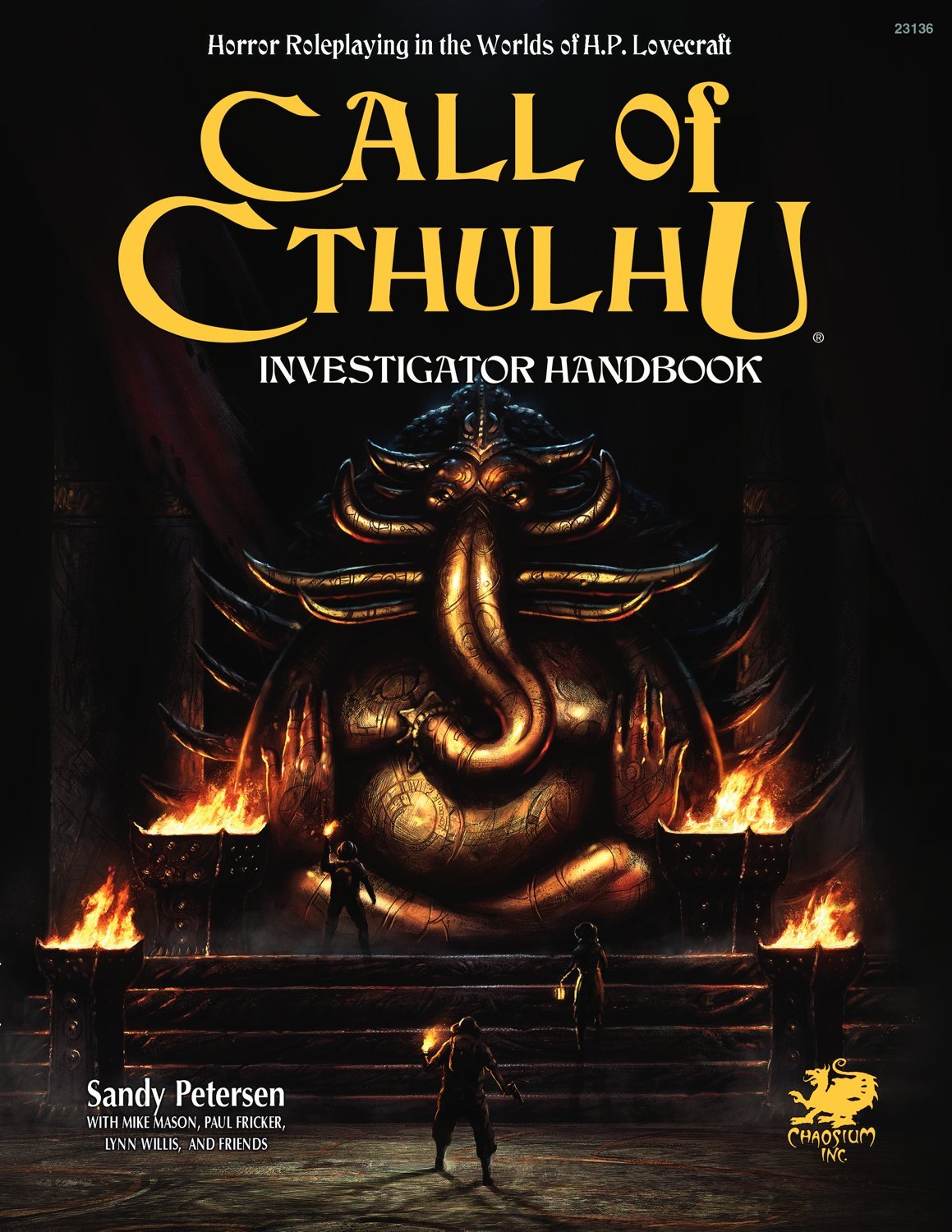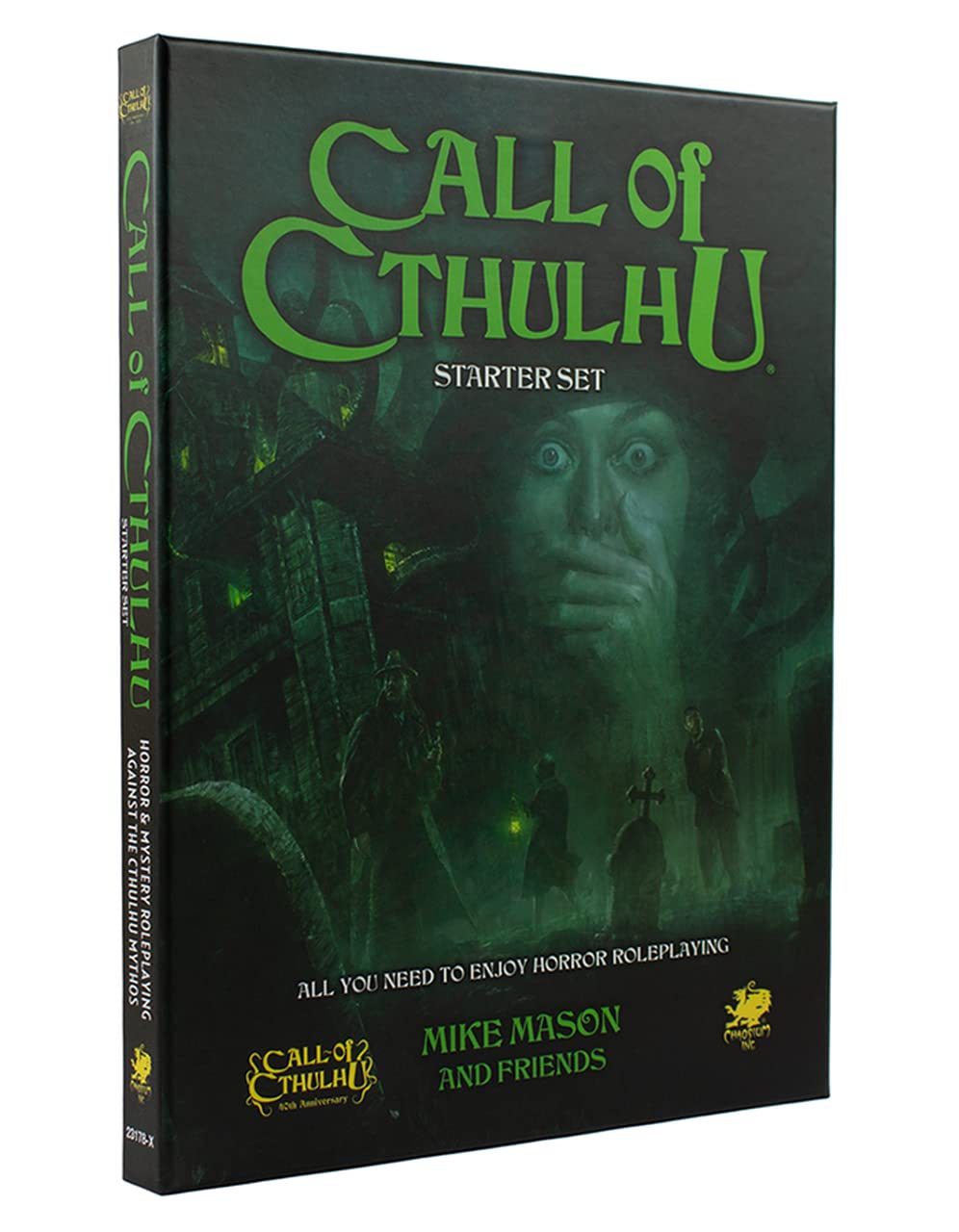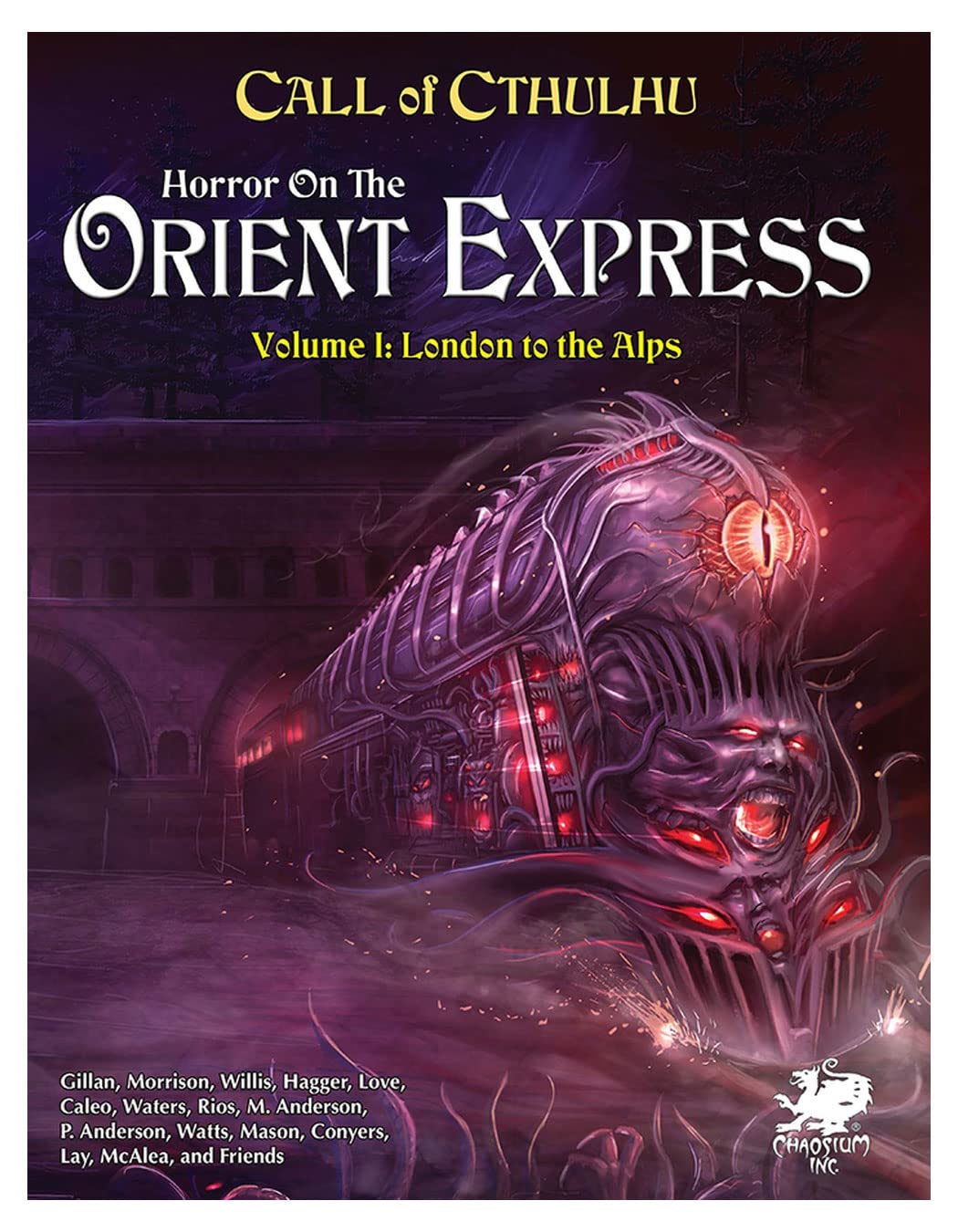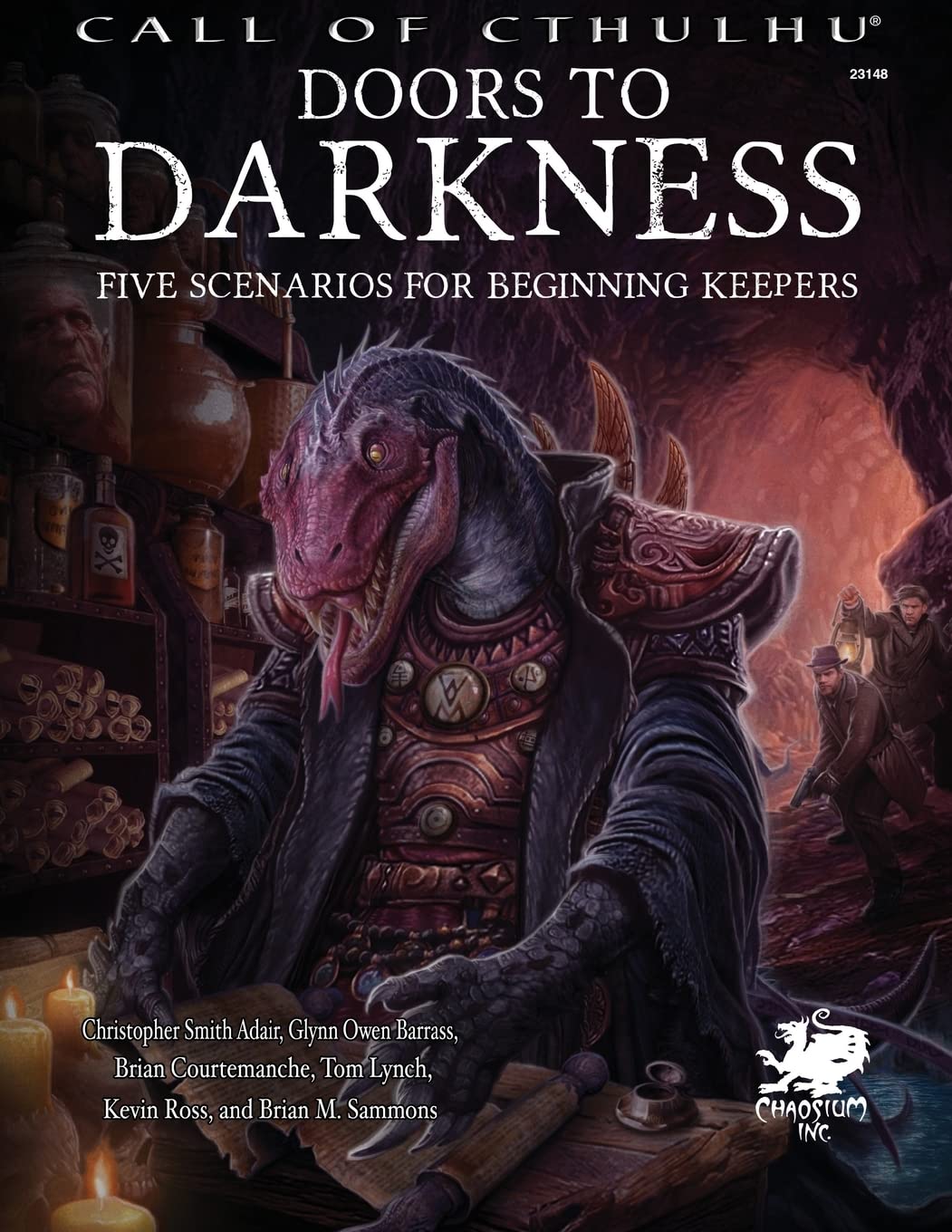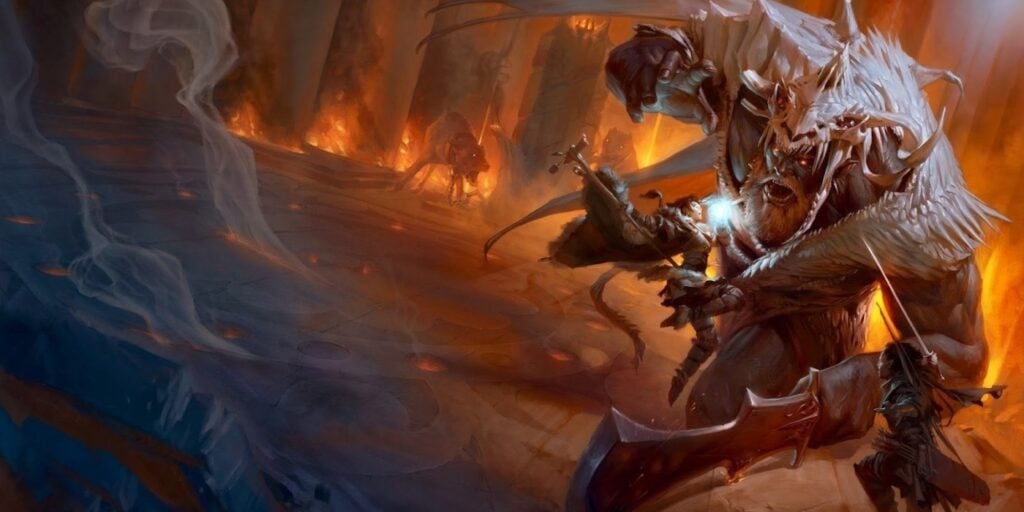How To Get Started With Chaosium’s ‘Call Of Cthulhu’


Curious about investigating eldritch truths and confronting cosmic horrors? Here’s how to get started with the Call of Cthulhu RPG.
As more and more players venture away from the familiar shoals of 5th Edition, other settings, darker settings, loom out of the shadows. And one of the biggest, murkiest presences is Call of Cthulhu. Of the non-d20 systems, it’s probably the one you’re most likely to have heard of.
But it is surrounded by an aura of whispers and rumors. The unknown calls from its cover. Its pages promise a descent into a world of horror and madness. At least if you believe the stories. There are many urban legends about Call of Cthulhu. The biggest one is that it’s not a game you win. Except for Old Man Henderson.
Or that you’ll watch your character die in the face of eldritch monsters. Or lose their wits as they uncover secret spells. Call of Cthulhu is something of an urban legend itself. But we’re here to demystify it. Here’s how to get started with Call of Cthulhu.
How to Get Started With Call of Cthulhu – Overview
In a nutshell, Call of Cthulhu is a game about investigating the occult happenings in a world like our own. Though, most people who play tend to set their games in the roaring 20s of the previous century. There’s something about the horror of HP Lovecraft’s Mythos that lends itself to an earlier time. Perhaps it’s the thinly-veiled racism.
But! Here’s what you need to know to get started with Call of Cthulhu. First things first, there are a few similarities. You’ll find familiar attributes like Strength and Dexterity. And these attributes help determine how good you are at a thing. Also, skills help pile on top of that, adding to your character’s competence, and defining what they can and can’t do.
The first difference you’ll notice, though, is the dice system. There are no d20s to be had here. Unless you want to use one as a counter or something. Call of Cthulhu is based on a percentile system, which makes it easy to know exactly how likely you are to succeed at something.
If you’ve never rolled a percentile dice, it’s two d10s (or a d100 if you prefer that nomenclature) one is the tens, and one is the ones. You typically want to roll under your skill. If you have a skill rating of 52%, you’ll want to roll a 52 or less. Which also gets you your odds. Rolling low is good. Which can take some getting used to. And if you’re thinking “hah! I roll low all the time, this will be easy” you’d best prepare now for the disappointment of suddenly only being able to roll 8s and 9s on a d10.
Also instead of picking a class, you pick an occupation, which is way less rigid. They just give you starting skills, but advancement in the game is less based on your level, and more based on increasing your skills (and thus your chance of succeeding).
But if you really want to get started with Call of Cthulhu, you’ll want to grab a few books. Two, specifically.
Call of Cthulhu: Keeper Rulebook
Unlike other RPGs, you actually need both the player’s and GM’s books to play the game. The Keeper Rulebook contains the core rules of the game. It’s got all your monster rules and the overall background of the setting. It also has spells, and most importantly, some of the best GM advice you’ll find for running this kind of game.
Call of Cthulhu plays wildly different from D&D. You aren’t extraordinary heroes facing gods and monsters with the expectation of succeeding. You’re ordinary people, trying to scrape by with your wits. And a bit of luck.
And the Keeper Rulebook (GMs in CoC are Keepers of Arcane Lore) has everything you need to run Call of Cthulhu.
Call of Cthulhu: Investigator Handbook
But if you want to be an investigator? A player character, if you will? You’ll need the Investigators Handbook. This book is the essential guide for the rest of the Call of Cthulhu table. The Investigator’s Handbook has expanded rules for creating your player character. You’ll find more occupations, skill descriptions, and detailed information about the player side of the setting.
There’s also, incredibly, some great advice for being a good Call of Cthulhu player as well.
Call of Cthulhu: Starter Set
Of course, if you really just want to dive in. You can always grab the Starter Set. Like any other RPG starter set, this one contains streamlined, quickstart versions of everything you need to play –including one of the best GM tools I’ve ever seen, a solo introductory adventure that teaches you the basics of the game as you play through it.
So that by the time you’re done, you’re ready to be a Keeper of Arcane Lore for your players. alongside the essential quickstart rules, you get ready-made player characters, three starter adventures, and enough dice to start playing.
Horror on the Orient Express
If, like me, one of the best ways that you can jump in is with a campaign you can crib from, Chaosium released a great starter campaign in 2021. Horror on the Orient Express gathers together up to 19 adventures that will take you from London to Paris to Constantinople and places beyond! If you want something that encapsulates the CoC experience, this two-volume campaign is it.
Doors to Darkness
If you prefer something a little less ambitious, then you might want to check out Doors to Darkness. This is a collection of five different adventures designed for people new to the game. On either side of the table. A new Keeper will find plenty of adventures that introduce the more complicated mechanics. While Investigators will discover the twists and turns. All of these adventures come with advice on how to run the adventure, and how to make sure everyone is having good fun.
It’s just a great tool to have. If you want your Call of Cthulhu games to last longer than the first session you decide to play, this is a great place to start.
Oh hey! BoLS might make a little money if you decide to buy these items. We need that money to buy certain sacrificial items– you know what? It’s not important.
Happy Investigating!

